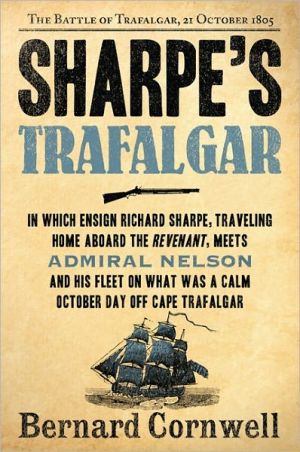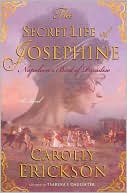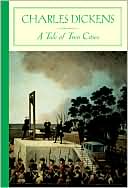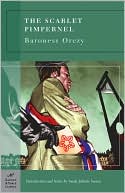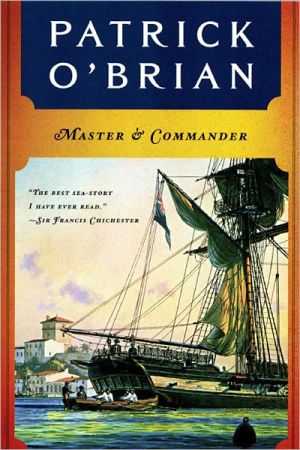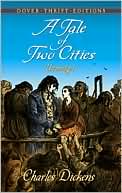Sharpe's Trafalgar (Sharpe Series #4)
"We've got the six carronades, sir, and they can throw thirty-two pounds apiece plus a cask of musket balls as well, which will make a Frenchman weep, sir. Or so I'm told, sir."\ Richard Sharpe—soldier, hero, rogue—the man you always want on your side. Born in poverty, he joined the army to escape jail and climbed the ranks by sheer brutal courage. He knows no other family than the regiment of the 95th Rifles, whose green jacket he proudly wears.
Search in google:
Special feature! This e-book edition contains "Sharpe's Skirmish: Richard Sharpe and the Defence of Tormes, August 1812," an original and e-book exclusive short story by Bernard Cornwell.Observer (London)Cornwell's narration of this epic sea-battle is quite masterly and supremely well-researched.... One of the best in ... Sharpe....
Chapter One\ \ \ \ "A hundred and fifteen rupees," Ensign Richard Sharpe said, counting the money onto the table.\ Nana Rao hissed in disapproval, rattled some beads along the wire bars of his abacus and shook his head. "A hundred and thirty-eight rupees, sahib."\ "One hundred and bloody fifteen!" Sharpe insisted. "It were fourteen pounds, seven shillings and threepence ha'penny."\ Nana Rao examined his customer, gauging whether to continue the argument. He saw a young officer, a mere ensign of no importance, but this lowly Englishman had a very hard face, a scar on his right cheek and showed no apprehension of the two hulking bodyguards who protected Nana Rao and his warehouse. "A hundred and fifteen, as you say," the merchant conceded, scooping the coins into a large black cash box. He offered Sharpe an apologetic shrug. "I get older, sahib, and find I cannot count!"\ "You can count, all right," Sharpe said, "but you reckon I can't."\ "But you will be very happy with your purchases," Nana Rao said, for Sharpe had just become the possessor of a hanging bed, two blankets, a teak traveling chest, a lantern and a box of candles, a hogshead of arrack, a wooden bucket, a box of soap, another of tobacco, and a brass and elmwood filtering machine which he had been assured would render water from the filthiest barrels stored in the bottom-most part of a ship's hold into the sweetest and most palatable liquid.\ Nana Rao had demonstrated the filtering machine which he claimed had been brought out from London as part of the baggage of a director of the East India Company who had insisted on only the finest equipment. "You put the waterhere, see?" The merchant had poured a pint or so of turbid water into the brass upper chamber. "And then you allow the water to settle, Mister Sharpe. In five minutes it will be as clear as glass. You observe?" He lifted the upper container to show water dripping from the packed muslin layers of the filter. "I have myself cleaned the filter, Mister Sharpe, and I will warrant the item's efficiency. It would be a miserable pity to die of mud blockage in the bowel because you would not buy this thing."\ So Sharpe had bought it. He had refused to purchase a chair, bookcase, sofa or washstand, all pieces of furniture that had been used by passengers outward bound from London to Bombay, but he had paid for the filtering machine and all the other goods because otherwise his voyage home would be excruciatingly uncomfortable. Passengers on the great merchantmen of the East India Company were expected to supply their own furniture. "Unless you would be liking to sleep on the deck, sahib? Very hard! Very hard!" Nana Rao had laughed. He was a plump and seemingly friendly man with a large black mustache and a quick smile. His business was to purchase the furniture of incoming passengers which he then sold to those folk who were going home. "You will leave the goods here," he told Sharpe, "and on the day of your embarkation my cousin will deliver them to your ship. Which ship is that?"\ "The Calliope," Sharpe said.\ "Ali! The Calliope! Captain Cromwell. Alas, the Calliope is anchored in the roads, so the goods will need to be carried out by boat, but my cousin charges very little for such a service, Mister Sharpe, very little, and when you are happily arrived in London you can sell the items for much profit!"\ Which might or, more probably, might not have been true, but was irrelevant because that same night, just two days before Sharpe was to embark, Nana Rao's godown was burned to the ground and all the goods: the beds, bookcases, lanterns, water filters, blankets, boxes, tables and chairs, the arrack, soap, tobacco, brandy and wine were supposedly consumed with the warehouse. In the morning there was nothing but ashes, smoke and a group of shrieking mourners who wailed that the kindly Nana Rao had died in the conflagration. Happily another godown, not three hundred yards from Nana Rao's ruined business, was well supplied with all the necessities for the voyage, and that second warehouse did a fine trade as disgruntled passengers replaced their vanished goods at prices that were almost double those that Nana Rao had charged.\ Richard Sharpe did not buy anything from the second warehouse. He had been in Bombay for five months, much of that time spent sweating and shivering in the castle hospital, but when the fever had passed, and while he was waiting for the annual convoy to arrive from Britain with the ship that would carry him home, he had explored the city, from the wealthy houses in the Malabar hills to the pestilential alleys by the waterfront. He had found companionship in the alleyways and it was one of those acquaintances who, in return for a golden guinea, gave Sharpe a scrap of information which the ensign reckoned was worth far more than a guinea. It was, indeed, worth a hundred and fifteen rupees which was why, at nightfall, Sharpe was in another alley on the eastern outskirts of the city. He wore his uniform, though over it he had donned a swathing cloak made of cheap sacking which was thickly impregnated with mud and filth. He limped and shuffled, his body bent over with a hand outstretched as though he were begging. He muttered to himself and twitched, and sometimes turned and snarled at some innocent soul for no apparent reason. He went utterly unnoticed.\ He found the house he wanted and squatted by its wall. A score of beggars, some horribly maimed, were gathered by the gate along with almost a hundred petitioners who waited for the house's owner, a wealthy merchant, to return from his place of business.\ Sharpe's Trafalgar. Copyright © by Bernard Cornwell. Reprinted by permission of HarperCollins Publishers, Inc. All rights reserved. Available now wherever books are sold.
\ Boston Globe"Excellently entertaining. If you love historical drama . . . then look no further."\ \ \ \ \ Wall Street Journal"Fun page-turners that fan clubs all over the world are devoted to."\ \ \ The Economist"The direct heir to Patrick O’Brian."\ \ \ \ \ The Economist"The direct heir to Patrick O'Brian."\ \ \ \ \ Boston Globe"Excellently entertaining. If you love historical drama...then look no further."\ \ \ \ \ EconomistThe direct heir to Patrick O'Brian.\ \ \ \ \ Wall Street JournalFun page-turners that fan clubs all over the world are devoted to.\ \ \ \ \ Boston GlobeExcellently entertaining. If you love historical drama. . . then look no further.\ \ \ \ \ Evening StandardA rousing read.\ \ \ \ \ Boston GlobeExcellently entertaining. If you love historical drama...then look no further.\ \ \ \ \ Observer (London)Cornwell's narration of this epic sea-battle is quite masterly and supremely well-researched.... One of the best in ... Sharpe....\ \ \ \ \ Publishing NewsAdventure of the most exhilarating kind is in store for the reader.\ \ \ \ \ Wall Street JournalFun page-turners that fan clubs all over the world are devoted to.\ \ \ \ \ Publishers WeeklyNobody describes bloody battle scenes better than Cornwell, and even he outdoes himself with this riveting novel about the epic naval battle off Spain's Cape Trafalgar in 1805. This is the 17th volume in his popular Napoleonic War series about Richard Sharpe, a brutish yet admirable soldier in the British army. Here Cornwell jumps back chronologically in Sharpe's glorious career to 1805, when Sharpe is promoted from the ranks for saving Lord Arthur Wellesley's life in India. Loaded down with looted jewels, the bastard son of a London whore heads back to England to a posting with the famous 95th Rifle Regiment. His battlefield promotion to junior officer rank makes common soldiers wary, and gentlemen officers scornful, and Sharpe decidedly uncomfortable in a role he does not yet know how to play. But he certainly knows how to fight. As usual, there is not only plenty of action but romance and intrigue as well. Sailing aboard a large East India Company merchant ship, Sharpe encounters a wealthy married woman whose charms he cannot resist, a pompous English lord he cannot stand and a host of treacherous fellow passengers. Unusual circumstances, betrayal and some bad luck next find him aboard a British ship-of-the-line in pursuit of a French warship in the Atlantic. Beyond the murky horizon lies an unexpected rendezvous at Trafalgar, where Lord Nelson and the British fleet wait to meet the combined French and Spanish fleets. The naval battle occupies the last hundred pages and is stunning for its ferocity, detail, historical accuracy and suspense. Cornwell's fans will love Sharpe at sea in this latest installment in a first-rate series. (May) Forecast: Cornwell's books are major bestsellers in the U.K. Sharpe's Trafalgar hit the top of the charts and HarperCollins is pushing for similar success in the U.S. An eight-city author tour, national advertising and a 25-city national radio campaign will help, but word of mouth generated by satisfied readers should be even more effective. Copyright 2001 Cahners Business Information.\ \ \ \ \ Library JournalHere's something special: the novel about the Battle of Trafalgar that C.S. Forester never wrote for his naval hero, Horatio Hornblower. However, instead of putting Hornblower in the history-changing battle, Forester acolyte Cornwell uses his own hero, soldier Richard Sharpe. It's 1805, and Sharpe now a commissioned officer is on his way home from India when some reasonably plausible events put him aboard a British ship of the line, which happens to reach the coast of Spain just as Admiral Nelson is preparing to attack France and Spain's combined fleets. The ensuing naval action is as fine as anything Forester ever wrote, and Hornblower himself would have been proud of Sharpe's conduct. It's all rollicking great fun, with generous dollops of real military history thrown in. William Gaminara's energetic reading helps to make this a can't-miss acquisition for general collections. R. Kent Rasmussen, Thousand Oaks, CA Copyright 2001 Cahners Business Information.\ \ \ \ \ Kirkus ReviewsOne might think Cape Cod's Cornwell is universally admired for his British historicals featuring Richard Sharpe, whose career Cornwell captures in back-and-forth leapfrog fashion from 1799 to 1821, filling in whatever years he chooses (Sharpe's Triumph, 1999, set in India, 1803). But many international fans complain that their particular country—Holland, France, Spain—has been presented most foully by him, especially at the battle of Waterloo. This one takes up Sharpe's adventures in Spain 1805 and is the first Sharpe story set at sea (where, Cornwell admits, Sharpe has no place being) and shows how Nelson abandons old methods of attack and chops the French line of battle into three pieces. A mug of port, a wedge of blue-veined cheese, and some hard sea-biscuits for the master. Author tour\ \
